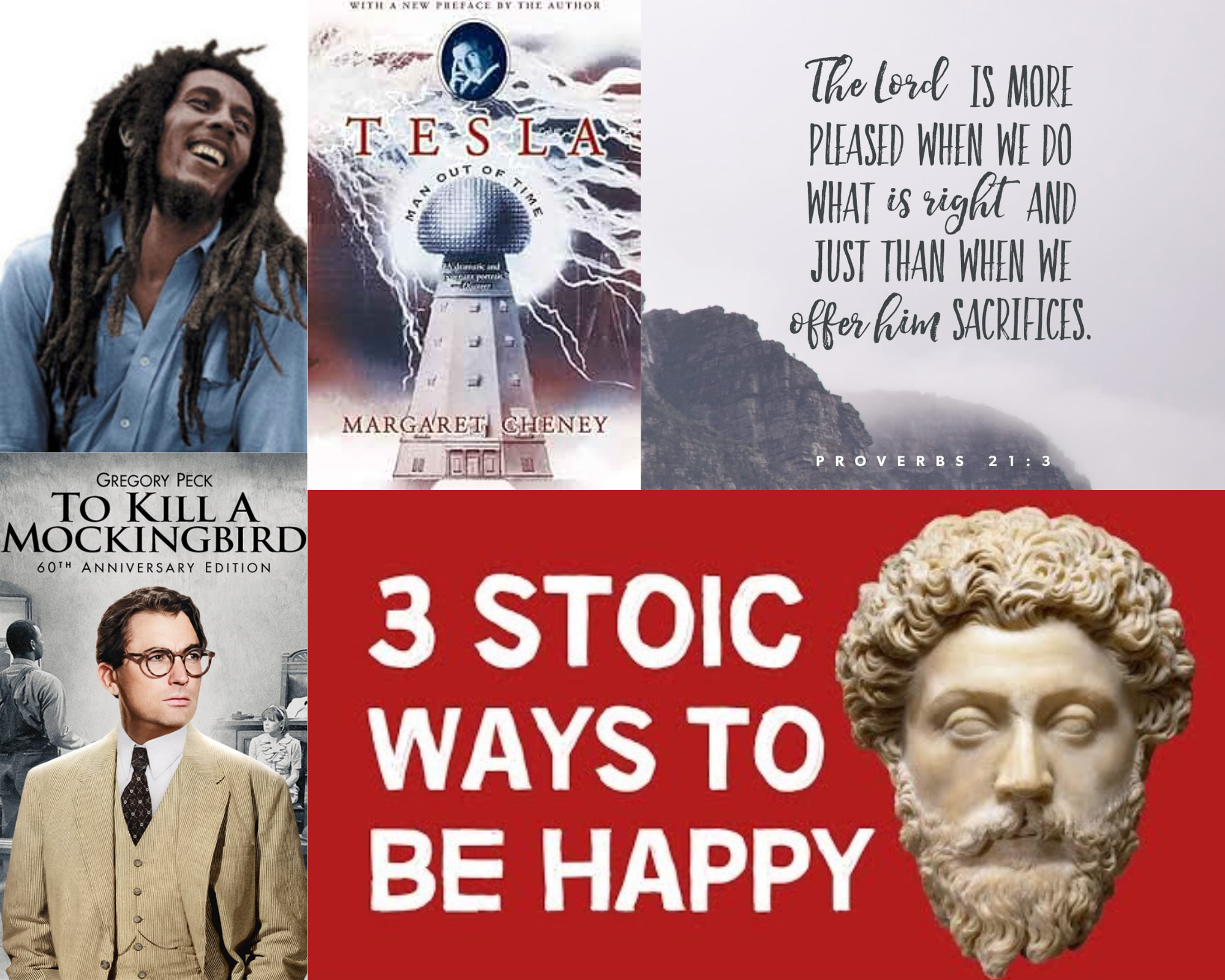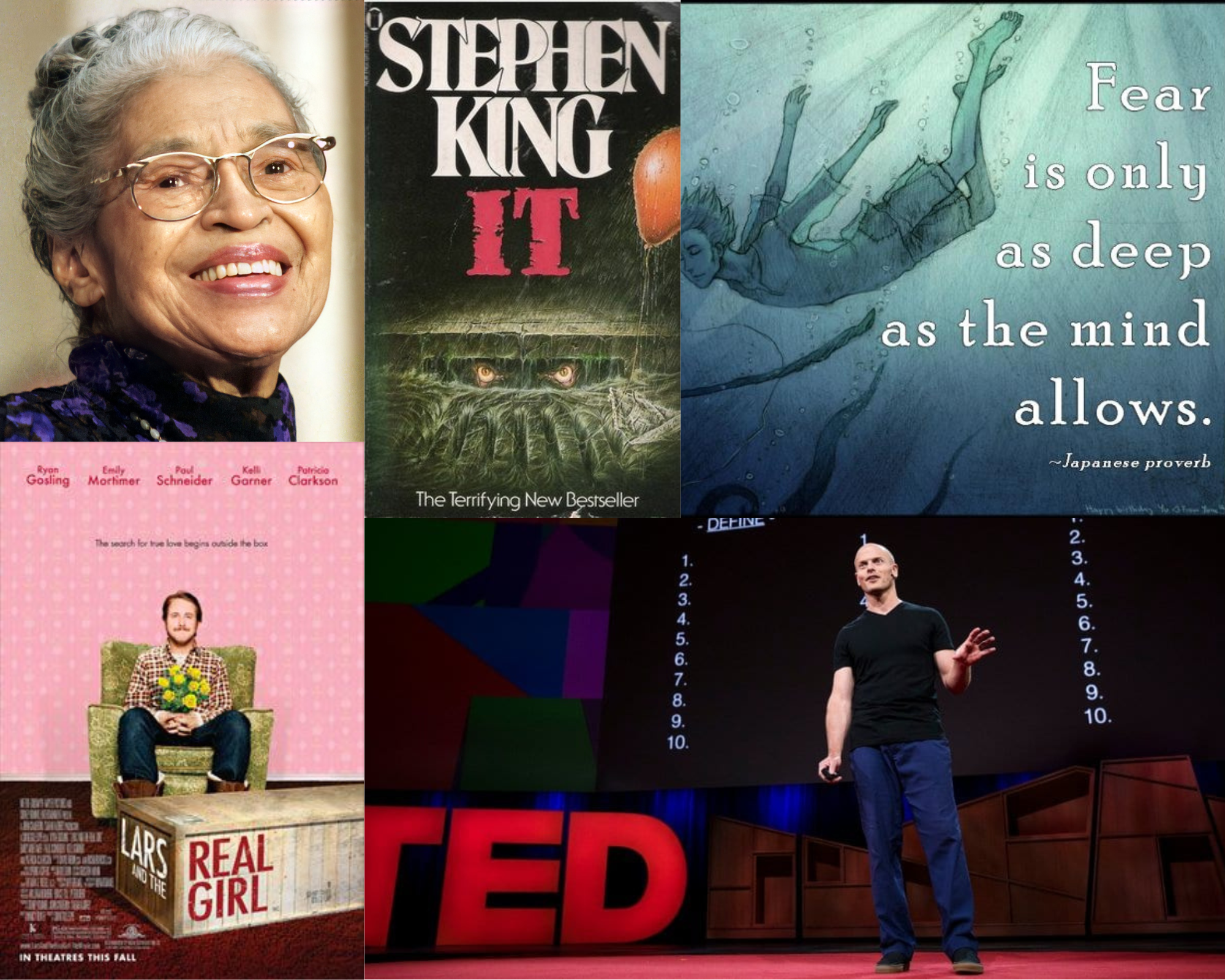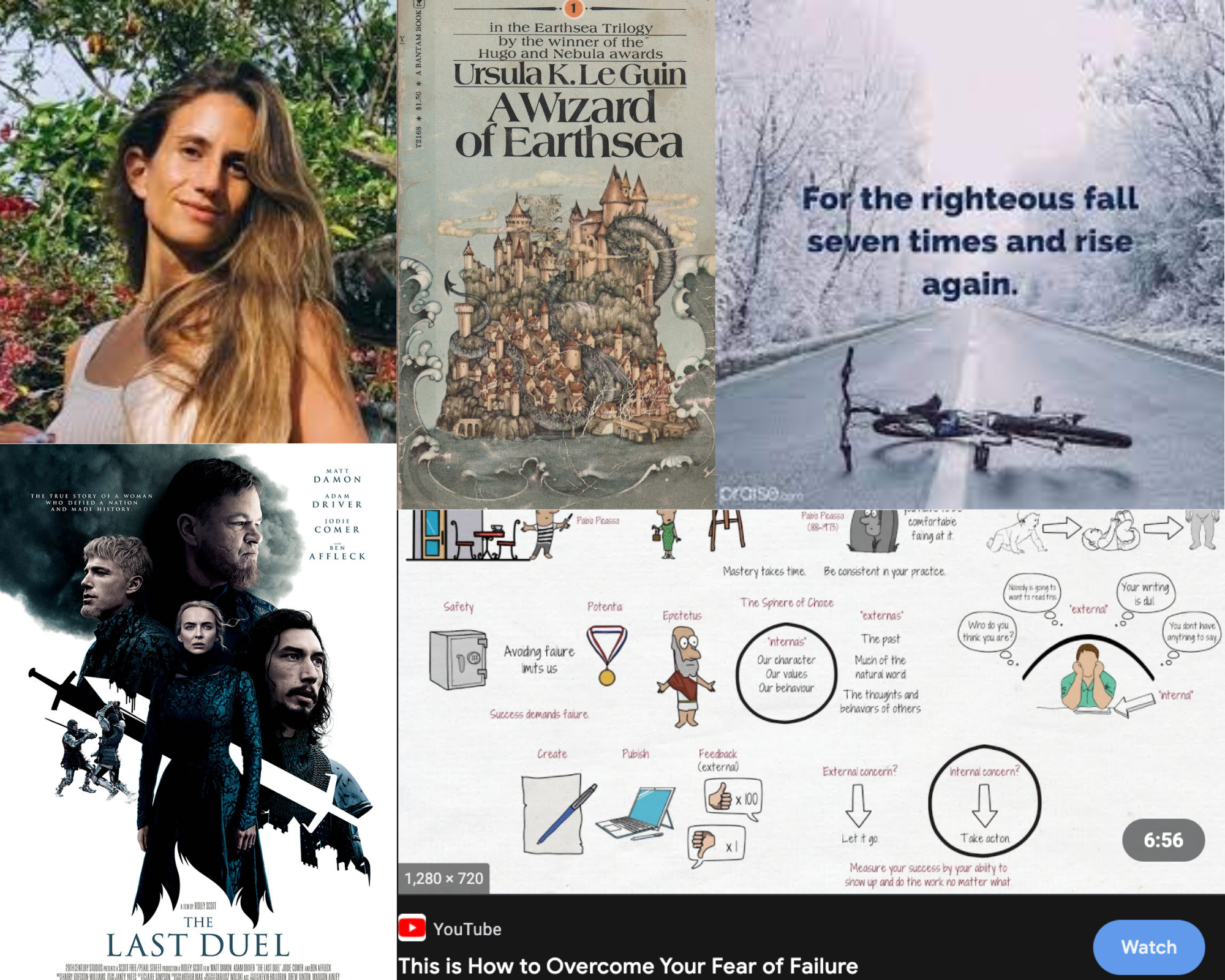Sunday Supplement #178 (October 6th, 2024)
Below is another Sunday Supplement with a quote worth sharing, a book worth reading, a movie worth watching, brainfood worth consuming, and a spiritual passage worth pondering.
Please take something away from these recommendations that enriches your week ahead!
Quote of the Week:
“The greatness of man is not in how much wealth he acquires, but in his integrity and his ability to affect those around him positively.”
– Bob Marley
Book of the Week:
Tesla: A Man Out of Time – Margaret Cheney
I picked up Tesla: A Man Out of Time because I was curious to learn more about a man entrenched in history but whom I knew little about.
Cheney’s biography of Nikola Tesla is an engaging read that covers Tesla’s childhood in Yugoslavia to his death in New York in the 1940s.
There are entertaining anecdotes, including some of Tesla’s friendship with Mark Twain and interesting insights into his inventions, which others commercialized.
After reading the biography, I found that it wasn’t as in-depth as it could have been and wasn’t as objective as it should have been.
I think it’s worth reading if you are interested in whetting your appetite for a deeper excursion into the history of a brilliant scientist and inventor.
Movie of the Week:
The 1963 film To Kill a Mockingbird, based on Harper Lee’s Pulitzer Prize-winning novel, remains a classic, as does its source material.
The story is set in a small town in 1930s Depression-era Alabama. It follows the childhood of Scout and the events around the trial of a Black man for an underserved rape charge.
Atticus Finch, Scout’s father, a widowed lawyer, defends the man on trial and tries to educate his children against prejudice.
To Kill a Mockingbird is a classic in film and literature. The film won three Academy Awards, including Best Actor in a Leading Role for a brilliant performance by Gregory Peck.
Brainfood of the Week:
3 Stoic Ways To Be Happy | Einzelgänger
Einzelgänger’s YouTube channel features videos that explore different people and ideas of history with the aim of inspiring, resonating, and entertaining.
The video starts with the observation that many people are concerned with achieving a happy life. Einzelgänger highlights how the Stoics figured out how to suffer less and enjoy more with a system of exercises, wisdom, and ethics.
The first point Einzelgänger covers is about altering your judgments to be aware of what lies within your control and what lies outside of it. Check out the video to see the other two points.
I’ve featured several Einzelgänger videos in previous Sunday Supplements. If you enjoyed this video, check out the other posts or his YouTube channel.
Closing Spiritual Passage:
“To do what is right and just is more acceptable to the Lord than sacrifice.”
– Proverbs 21:3
I think it can be an easy trap to create narratives around your actions or the actions of others to support your opinion of yourself or others.
This Bible passage reminds me not to get wrapped up in excuses for poor behavior. We can stumble and make mistakes, but we should be honest with ourselves.
The part of the verse about sacrifice reminds me of how we can take on burdens or cope with a wrong situation rather than speak up for what is right.
Reflect on the integrity of your actions, move forward, and have a blessed week ahead!




